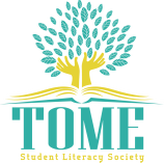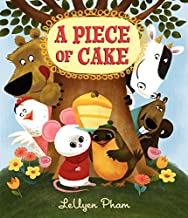Book Choice, Part One: Making it Happen
September 12, 2022In previous posts - here and here! - I've discussed some of the reasoning behind our independent choice program and how it is backed by solid research. I'm sure there are still some lingering questions about selection, not the least of which is how students will ever get to the books we deem "important" if they are always allowed to read what they want. There are several facets to this conversation that we can dive into throughout the year, but the summary of them all is that we believe that encouraging a high volume of reading, having a wide selection of books always available, and moving students up "reading ladders" of complexity WILL get them to those books that we consider literary canon.
In the meantime, though, enjoyable engagement with what they're reading is, again, the key to their development as readers. That poses its own challenges, I understand! There are books everywhere, but as a community we undersand the importance of guarding our children's hearts and minds. We know that we can't just let them loose on the entirety of a bookstore or public library collection, and even within our community, we have differing family guidelines on how to navigate those situations (and at what ages, etc).
This means that it's impossible to give any one answer on how to choose good books for our kids! It will always require diligence and crticial evaluation on the part of both parents and students, and in my next post I'll discuss this in more detail. I don't want to convey, however, that it's going to be impossible to find good books short of reading them all yourself, so here are few tips that may be helpful as you assist your children in making good book choices!
1. The CHESS library: I want to reiterate that there is just NO way to make this process a one-size-fits-all strategy, but at the same time, I hope that in the CHESS library, there ARE certain prinicples you can rely on in a general sort of way. I would encourage you to read the policies and guidelines in the Parent/Student Handbook to get the best idea of what those are. I'm also happy to have a conversation about what guides our selection policies, since it is often a complex process more than one bound by exact rules. Keep in mind that these processes also take into account age ranges of students as well: we expect that high schoolers will be able to process more mature content than lower school school students. You can go to chesschristian.libib.com to look through our online catalog and filter by general age level and genre.
2. CHESS Christian Library Book Lists: Most of these are already in included in the library collection, but there are some others that haven't made it in yet but which we've read and/or screened through various methods. These are arranged in general grade ranges (take these categories as liberally as you like!) and by genre. Each book is linked to its Goodreads page so you can get a general description of the book. You can also use the Reader's Advisory Form to receive individualized recommendations.
2. Homeschool and private school curriculum companies like Sonlight and Veritas Press offer many book lists arranged by general age and grade levels, and while it's true you shouldn't assume anything, they are generally reliable. Veritas Press is a good one for readers who prefer classics or more intense reading, (far less helpful for finding high-interest titles), while Sonlight may present more accesible fare as well as some "fun" reading. The Tome Society is not a Christian company, but screens books for some basic content (details on the website) and presents lists of some great high-interest titles.
3. For these books as well as for others you may find at the libary, in bookstores, or being recommended in various other places, you can screen for content at Common Sense Media, realizing that it may not catch every theme or subject matter you find problematic. So here's a tip for that: Look up a book on Goodreads and find the "Shelves" the book has been assigned to by various readers. Be sure to click "See All," and scan all the tags. If there is notable content of a certain nature (say, LGBTQ content), someone will have tagged it. This is not foolproof, but it usually helps immensely!
Now, this likely will not catch casual mentions of all content you might find objectionable, so this is where family preference will come into play. You will likely need to pre-read everything you find in a bookstore or public library if you want your child to avoid seeing a mention of anything outside of your family standards for books, and for the CHESS libary, I would recommend that you come look through our collection and communicate your family guidelines clearly to both me and to your student. (I've found that students are typically quite faithful in following family guidelines!)
Whatever your family guidelines, however, I would love for parents to know what we have so they can help their students choose wisely! I am always eager to help facilitate choice, and the more information and communication I have, the better I can be at my job.
One last item of note for this post - to help with this task of book selection, this year we are changing book fair vendors! It has become increasingly difficult to screen Scholastic material (and some costs with them have risen), so we are going to try the i55 Book Fair. I LOVE this company's philosophy and selection, as it is very much like the CHESS library's, and I have heard very postive reviews from other Christian school librarians. I think students will find great books they love (and yes, all the gadgets and novelties), and parents and grandparents will be able to shop with more confidence. Check it out!
Stay tuned for part two!


.png)






.png)


0 comments